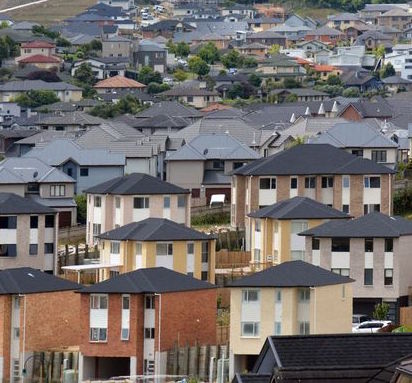News
15 November 2017
Martin Hawes: Property market could be flat for a decade...
Property’s reputation as a fail-safe retirement income strategy could come under intense pressure over the next few years, according to high-profile investment adviser and Lifetime Director, Martin Hawes.
Hawes, who counts a number of successful books on property investment in his extensive back-catalogue, says the local real estate market appears to be at “inflection point” after decades of almost uninterrupted gains.
“A lot of property investors who came into the NZ market in the last 10 to 20 years have only seen the good times,” he said. “The danger is that they now see property as a one-way bet.
“Nothing is a one-way bet.”
But now with a new, reform-minded Labour-led government taking charge just as the housing market naturally comes off the boil, that traditional Kiwi faith in the gravity-defying power of property is likely to be tested, Hawes says.
Even prior to the election result real estate prices were dropping off record highs – at least in Auckland – with the ASB property investor sentiment survey suggesting confidence was on the wane.
The latest ASB quarterly survey found a net 11 per cent of New Zealanders felt it was a bad time to buy a house, representing a six-year low for the index which had dropped repeatedly over the previous five quarters. In a perhaps counterintuitive result, the ASB survey also found 17 per cent expected house prices to keep rising, although just three months prior that same measure was at 32 per cent.
ASB chief economist, Nick Tuffley, attributed some of the declining confidence in property down to the loan-to-value lending restrictions imposed by the Reserve Bank in 2016 and “slightly higher mortgage rates”.
“But in recent months, uncertainty around the election has seen the market slow even further,” Tuffley told media.

Martin Hawes is a Director of Lifetime Income
Hawes says a number of Labour government initiatives such as banning foreign investment in existing NZ residential property, curbing immigration, removing the ability to offset real estate investment costs against other income, and implementing a plan to construct 100,000 low-cost homes (the so-called ‘KiwiBuild’ program) would probably have a dampening effect on the housing market.
And while the much-mooted comprehensive capital gains tax probably won’t get off the ground, Labour’s plan to push out the ‘bright line’ test – where tax is payable on gains if a house is sold within a set period – to five years from the current two could also affect house prices.
“I’m actually very much in favour of the move towards increasing the availability of affordable housing in NZ,” he says. “In fact, I’m chair of the Queenstown Lakes Community Housing Trust [which champions affordable housing in the region].”
However, the cumulative effect of housing affordability policies and general market dynamics will undoubtedly have knock-on consequences for investors.
The best-case scenario, Hawes says, would see the housing market flatten over the next decade, allowing first-home buyers to access affordable accommodation without putting too much strain on existing owners.
Nonetheless, he says the large number of ‘mum and dad’ investors who own rental property as a retirement income strategy should take the time now to review their expectations.
“If the income you’re likely to generate over the next 10 years compared to the property’s value is small then it might be a signal to sell,” Hawes says.

KiwiBuild may have a dampening effect on the housing market
He says property investors should test what would happen to their financial well-being, for instance, if they could no longer offset the costs of owning rental real estate against other income.
Another important factor to consider is the level of debt relative to property asset values and how that might be affected if expected capital gains fail to materialise.
Many retirees today own two or three houses as their chief source of income outside of NZ superannuation payments and they may not be completely mortgage-free, Hawes says.
According to Reserve Bank (RBNZ) figures, about 35 per cent of all house sales in have been to investors over the last decade or so. As at 2014, ‘small investors’ (defined as those who own one to three investment properties) represented about half of the NZ property investor numbers. A further 25 per cent of the NZ real estate investor population owned between four-to-six houses – suggesting there are large numbers of amateur rental property owners who may be at risk.
Retirees counting on a handful of rental properties to see them through “should be thinking that retirement could last a long time”, Hawes says.
“A lot can happen to economies and markets over 20 years, including property markets,” he says. “And unlike when you’re younger, when you’re retired you can’t recover as well if your assets are concentrated in one asset class.
“A diversified portfolio is the only strategy that holds up over time. Like the in-built diversification and income guarantee insurance you get in the Lifetime Income portfolio.”
In a summary of his 1996 book on real estate investing, Hawes says: “... to be successful in property you must buy, manage and sell property on the basis of analysis rather than instinct or sentiment”.
That advice still holds true today.
“Property investors need to be doing the numbers,” he says. “If investments don’t go as expected then it’s not just losing wealth and income – it’s wrecking lives.
“You have to remember that you’re investing to make sure you have a bloody good time in retirement. Lose sight of that at your peril.”
Martin Hawes is an authorized financial adviser and an independent director of Lifetime Retirement Income. Lifetime Retirement Income is managed by Lifetime Asset Management Ltd.

Martin Hawes is a Director of Lifetime Income
What could your retirement income be?